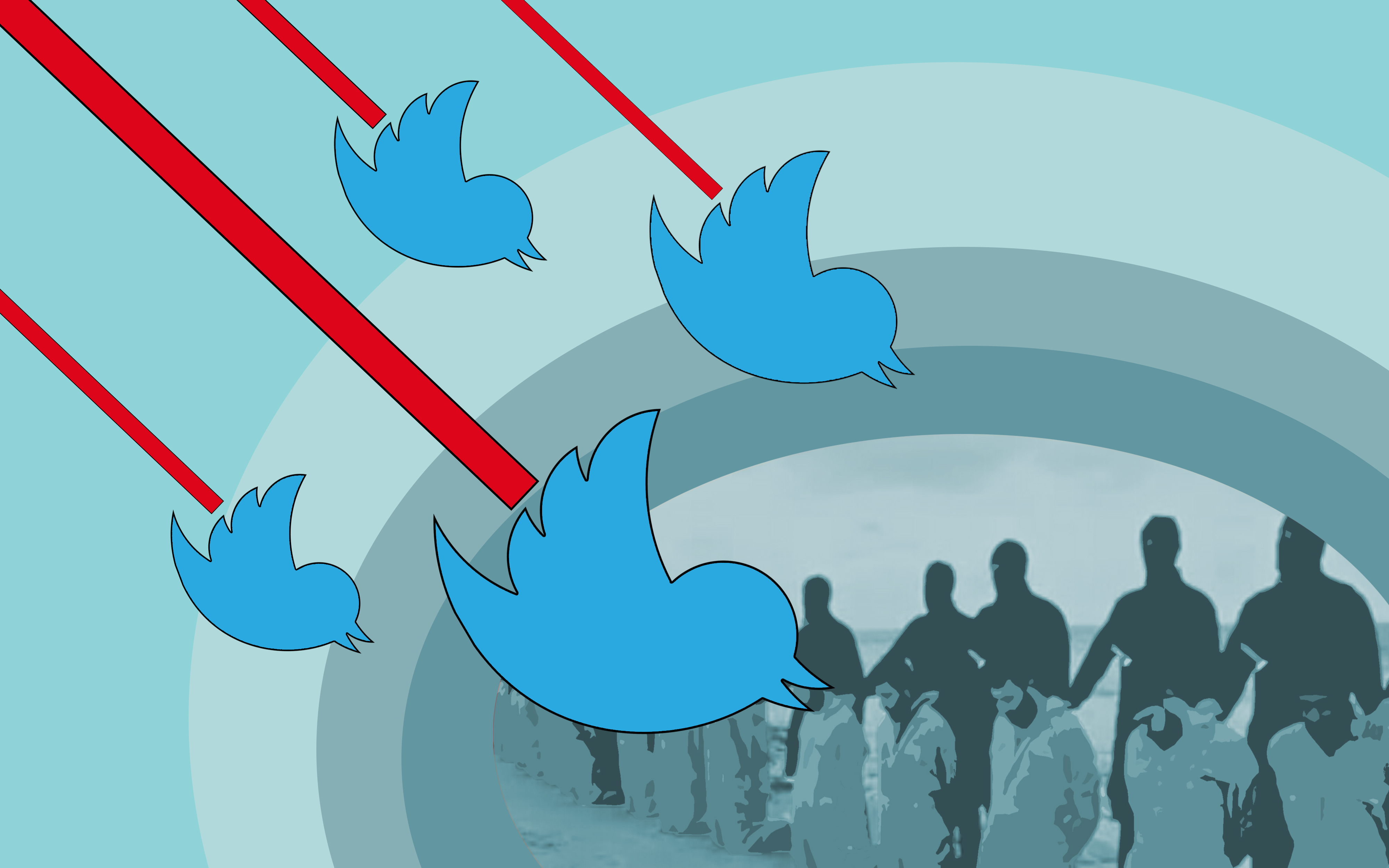How Obama can win the social media war against ISIS
He can start by taking a page from Vice News


A free daily email with the biggest news stories of the day – and the best features from TheWeek.com
You are now subscribed
Your newsletter sign-up was successful
If we know one thing in today's crazy, mixed-up, barbaric world, it's that the State Department is not the Pentagon.
In a discouraging moment, Marie Harf, a spokesman for State, recently told Chris Matthews that "we cannot kill our way out of this war" with the Islamic State, on account of stubborn "root causes" such as a "lack of opportunity for jobs." Rather than calling for a higher body count, however, Matthews intelligently demanded a better media operation. "We are seeing these pictures," he told Harf. "What are you supposed to say, 'Think about something else?'"
Meanwhile, for some preposterously bureaucratic reason, the task of beating ISIS at social media has fallen to a puny office at State called the Center for Strategic Counterterrorism Communications (CSCC). At a time when the Islamic State has become a global leader in shaping events through viral content, the U.S. is — humiliatingly, inexcusably — playing catch-up.
The Week
Escape your echo chamber. Get the facts behind the news, plus analysis from multiple perspectives.

Sign up for The Week's Free Newsletters
From our morning news briefing to a weekly Good News Newsletter, get the best of The Week delivered directly to your inbox.
From our morning news briefing to a weekly Good News Newsletter, get the best of The Week delivered directly to your inbox.
Fortunately, the reasons for this are plain, and our errors are correctable. All it takes is the right conceptual framework.
As The New York Times reports, the Obama administration has determined that beefing up the CSCC is the best way to amp up our social media battle. Unsurprisingly, Obama has tapped a ex-member of his inner legal circle, former Deputy Associate Counsel Rashad Hussain, to take over operations as director.
Hussain is an Indian-American Muslim and a Hafiz, the title given to one who has memorized the Koran. He appears to have been influential in helping shape the president's Cairo address in 2009. Hussain's personal experience is, no doubt, on point, but the Cairo speech stands as a dismaying testament to how much the administration's naivete and shortsightedness have failed us in the Middle East.
In fact, the installation of Hussain at the top of the State Department's social-media food chain intimates a much larger problem. The main challenge facing this and future administrations is not a matter of personnel so much as strategy. Admitting that the social-media response to ISIS has been poorly coordinated, Richard Stengel, an official at State, unintentionally revealed the problem in remarks to the Times: "We're getting beaten on volume, so the only way to compete is by aggregating, curating, and amplifying existing content."
A free daily email with the biggest news stories of the day – and the best features from TheWeek.com
Remarks like these reveal an enormous blind spot. As anyone knows who has followed the fortunes of Vice News or John Oliver, the way to beat volume is with quality, not quantity — quality measured by the ability to clearly and concisely put real-world events into unparalleled dramatic context. As yet, the CSCC's approach has been both too focused and too abstract, using social media "to create a competing narrative that strikes an emotional chord with potential militants weighing whether to join a violent extremist group."
Trying to sow moral doubt in the minds of would-be jihadis is not only flawed in its scatter-the-birdseed technique, but also fails to tap into the true power of the social web.
That power is perhaps best expressed in the very form ISIS knows so well: short, arresting videos that spread like wildfire. Instead of wallowing in content, the State Department and other agencies need to transcend the white noise with gripping micro-movies, expertly produced for maximum impact. Get the best documentarian from Vice, the best video editor from BuzzFeed. Get the Ennio Morricone of the Arab world. Get some GoPros on the helmets of people in the field. Bear witness to the unveiled truth about ISIS — not just the cages and the executions, but what ISIS really wants, as Graeme Wood reports at The Atlantic: "the imminent end of the world."
Put out one of these short videos a week — a laughably modest pace by the standards of social media. Make them necessary viewing, so potent and undeniable that we'll talk about them with the same level of captivation usually reserved for our favorite big-time ranters.
In a media culture defined by representative worldview spokesmen routinely "DESTROYING" their sitting-duck targets, America's online warfare should be the biggest game in town. Instead of ritually shaming the politically incorrect and culturally obtuse, the contempt and courage of a global audience can be focused, instant after instant, against an enemy that must literally be destroyed.
James Poulos is a contributing editor at National Affairs and the author of The Art of Being Free, out January 17 from St. Martin's Press. He has written on freedom and the politics of the future for publications ranging from The Federalist to Foreign Policy and from Good to Vice. He fronts the band Night Years in Los Angeles, where he lives with his son.
